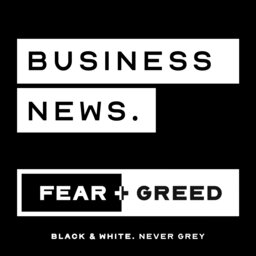Interview: Day traders vs High Net Worth investors
Day traders and High Net Worth investors are very different beasts - but Ryan Phillips has worked with both in his role as head of Bell Direct Advantage.
He joins Sean Aylmer to talk about the difference between the two investors, including strategies, assets and risk appetite.
Bell Direct Advantage is a supporter of this podcast. This is general information only. You should seek professional advice before making investment decisions.
In 1 playlist(s)
FEAR & GREED | Business News
Daily business news for people who make their own decisions, with business journalist Sean Aylmer an…Social links
Follow podcast
Recent clips

Gen X’s 'dirty fantasy': the four-day work week
06:12

Dividend investing: How to pick quality income stocks
06:07

Hate legislation on shaky ground; air traffic chaos; Hollywood’s highest grossing actor
15:36
 FEAR & GREED | Business News
FEAR & GREED | Business News